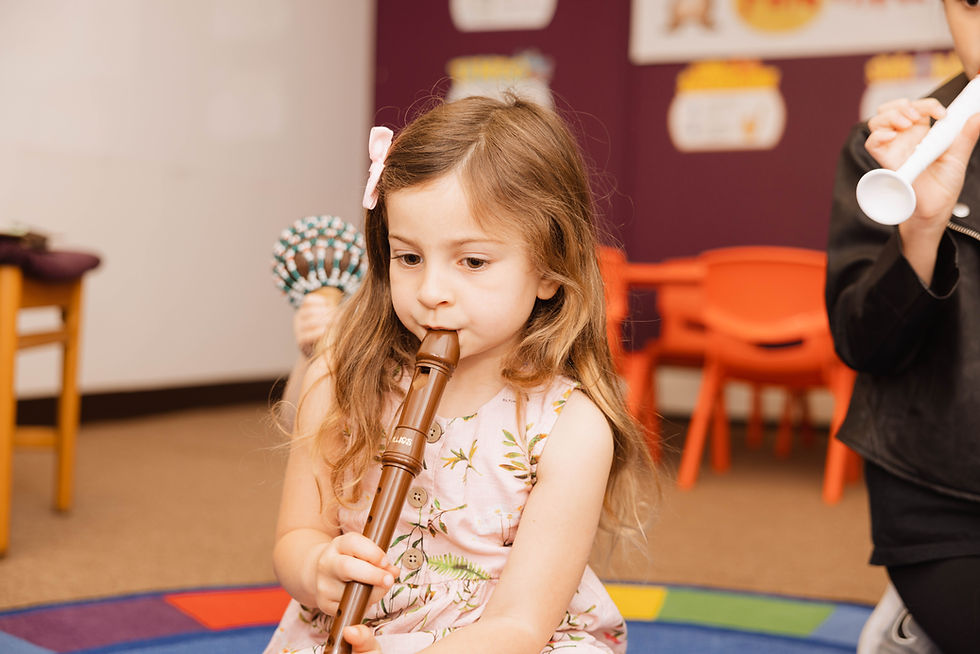Should My Teacher Have a Degree?
- Nick Doak

- Jun 2, 2025
- 2 min read
Updated: Sep 3, 2025
If you’ve ever found yourself wondering, “Does my child’s music teacher need a degree?” you’re not alone.
It’s a common question, and the answer might surprise you: not necessarily.

Degrees vs. Real-World Experience
Some of the most incredible music teachers I’ve met throughout my career didn’t earn a formal degree in music. They learned through playing, performing, teaching, and living music. On the other hand, I’ve met highly educated teachers with PhDs who, despite their impressive résumés, lacked the spark and communication skills that make for a great teacher.
A fancy diploma isn’t always a guarantee of passion, patience, or the ability to connect with students.
That said, in certain areas of music, like piano or violin, you’re more likely to find teachers with advanced degrees. These instruments often require years of technical training through academic study. For instruments like drums or electric guitars, many outstanding teachers built their expertise through real-world experience rather than formal education.
Our Approach: It’s All About the Student
At our school, we care the most about how our teachers connect with students. Every new student starts with a registration questionnaire. This helps us get to know who they are, why they’re interested in lessons, and what their goals might be. The first lesson is a low-pressure, exploratory session—more like a conversation than a formal class. It’s an opportunity for the teacher and student to get to know each other and start building a meaningful connection. Do they want to learn a song for a wedding? Start a garage band? Dye their hair green and join a punk rock group? (Yes, that’s happened.) If so, they may not need to dive into reading sheet music right away. They’d be better served by learning chords, strengthening their hands, and jamming out to The Ramones.
Now, let’s say a student dreams of majoring in music at a university. That’s a different journey entirely, one that will involve theory, reading music, and a mix of classical and popular repertoire. The key is knowing what each student needs.
Custom Curriculum, Not Cookie-Cutter Lessons
We don’t believe in a one-size-fits-all curriculum. Why teach everyone the same scales and songs when every student is so different?
A great music teacher listens first. They identify the student’s current skill level, understand their goals, and map out a plan to help them reach those goals. Whether your child is meeting with their regular teacher or a sub, the goal is the same: understand their interests and adapt on the spot.
So, Should a Music Teacher Have a Degree?
Maybe. But it’s not the most important thing.
The real question is whether the teacher can build a connection with your child. Can they guide, inspire, and foster growth? Can they channel curiosity into measurable progress? Because at the end of the day, a good teacher doesn’t just teach music. They teach a love of music.




Comments